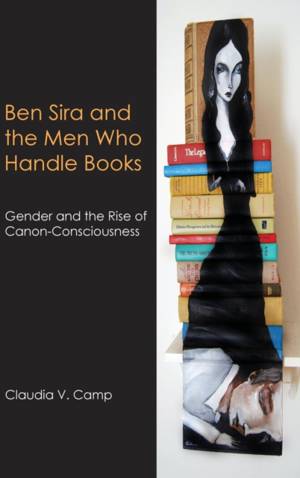
- Afhalen na 1 uur in een winkel met voorraad
- Gratis thuislevering in België vanaf € 30
- Ruim aanbod met 7 miljoen producten
- Afhalen na 1 uur in een winkel met voorraad
- Gratis thuislevering in België vanaf € 30
- Ruim aanbod met 7 miljoen producten
Zoeken
€ 108,95
+ 217 punten
Omschrijving
What have women to do with the rise of canon-consciousness in early Judaism? Quite a lot, Claudia Camp argues, if the book written by the early second-century BCE scribe, Ben Sira, is any indication. One of the few true misogynists in the biblical tradition, Ben Sira is beset with gender anxiety, fear that his women will sully his honor, their shame causing his name to fail from the eternal memory of his people. Yet the same Ben Sira appropriates the idealized figure of cosmic Woman Wisdom from Proverbs, and identifies her with 'the book of the covenant of the most high God, the law that Moses commanded us'. This, then, is Ben Sira's dilemma: a woman (Wisdom) can admit him to eternity but his own women can keep him out. It is Camp's thesis that these conflicted perceptions of gender are fundamental to Ben Sira's appropriation and production of authoritative religious literature, and that a critical analysis of his gender ideology is thus essential for understanding his relationship to an emerging canon. Ben Sira writes a book, and writes himself into his book, creating a possession into which he can sublimate his anxiety about the women he cannot truly possess and the God he cannot truly trust. What is more, if Ben Sira can be considered representative of his scribal class and context, his work may also provide a window into aspects of the larger cultural process of canon building, including the question of whether we would have a canon at all-or have the canon we have-if the men in that particular patriarchal culture had not coded it in the gendered terms that Ben Sira did.
Specificaties
Betrokkenen
- Auteur(s):
- Uitgeverij:
Inhoud
- Aantal bladzijden:
- 226
- Taal:
- Engels
- Reeks:
Eigenschappen
- Productcode (EAN):
- 9781907534744
- Verschijningsdatum:
- 23/05/2013
- Uitvoering:
- Hardcover
- Formaat:
- Genaaid
- Afmetingen:
- 156 mm x 234 mm
- Gewicht:
- 494 g

Alleen bij Standaard Boekhandel
+ 217 punten op je klantenkaart van Standaard Boekhandel
Beoordelingen
We publiceren alleen reviews die voldoen aan de voorwaarden voor reviews. Bekijk onze voorwaarden voor reviews.








